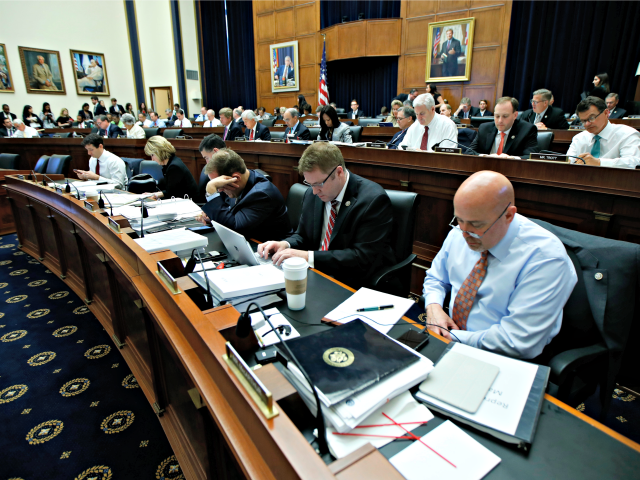The House passed a bill to overhaul the 2010 Dodd-Frank financial legislation on Tuesday, sending the bill to President Donald Trump to sign.
The House passed S. 2155, the Economic Growth, Regulatory Relief, and Consumer Protection Act 258-159, featuring 225 Republicans voting for the bill, 33 Democrats supporting the bill, while most Democrats voted against the legislation.
The Senate passed the Dodd-Frank financial reform bill in March, which was less ambitious compared to the House-passed Financial CHOICE Act, sponsored by House Financial Services Chairman Jeb Hensarling (R-TX). Hensarling suggested in April that he could support the Senate-passed bill as long as there were “other pathways” to advance more financial reforms not included in the Senate bill.
House Financial Services Chairman Hensarling cheered the bill’s passage on Tuesday, saying in a statement:
For far too long, far too many people in our country have struggled to make ends meet. They’ve struggled to buy a car; they’ve struggled to buy a home; they’ve struggled for their version of the American Dream. Why is this happening? Because Main Street banks and credit unions that Americans depend on have been stifled by the weight, load, volume, complexity and cost of heavy Washington bureaucratic red tape which has prevented them from serving their communities. But today, that changes.
Rep. Andy Barr (R-KY) said on the House floor on Tuesday that the Dodd-Frank bill is the most “pro-growth” banking bill in years.
The Senate bill would lower the heightened regulatory threshold for commercial banks to $250 billion from $50 billion, cutting the number of banks that receive increased scrutiny from roughly 38 banks to 12.
Marc Short, the White House’s legislative director, said that he was “hopeful” that the president can sign the bill before Memorial Day.
Competitive Enterprise Institute (CEI) Senior Fellow John Berlau cheered the House’s passage of the Dodd-Frank bill. Berlau said in a statement on Tuesday:
The Economic Growth, Regulatory Relief, and Consumer Protection Act — expected to pass the House today after passing the Senate in March – contains modest yet important relief that will benefit Main Street credit unions and regional and community banks. The bill’s major accomplishment is some much-needed tailoring of regulation to a financial institution’s size so that hometown banks and credit unions are no longer regulated like Wall Street behemoths.
Berlau noted, however, that Congress needs to enact more reform, including making the Consumer Financial Protection Bureau (CFPB) and reforming the government-sponsored enterprises Fannie Mae and Freddie Mac.
“To provide real financial relief for Americans, much more is required of Congress, the president, and regulatory agencies,” Berlau added.

COMMENTS
Please let us know if you're having issues with commenting.